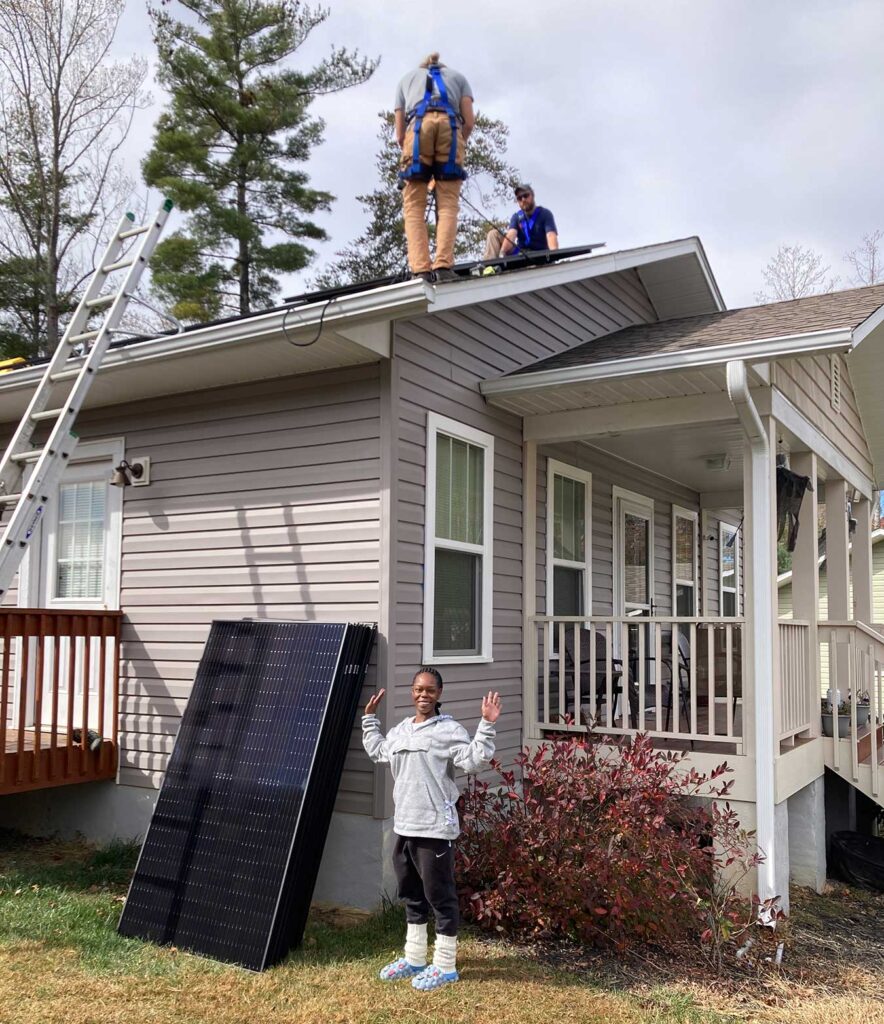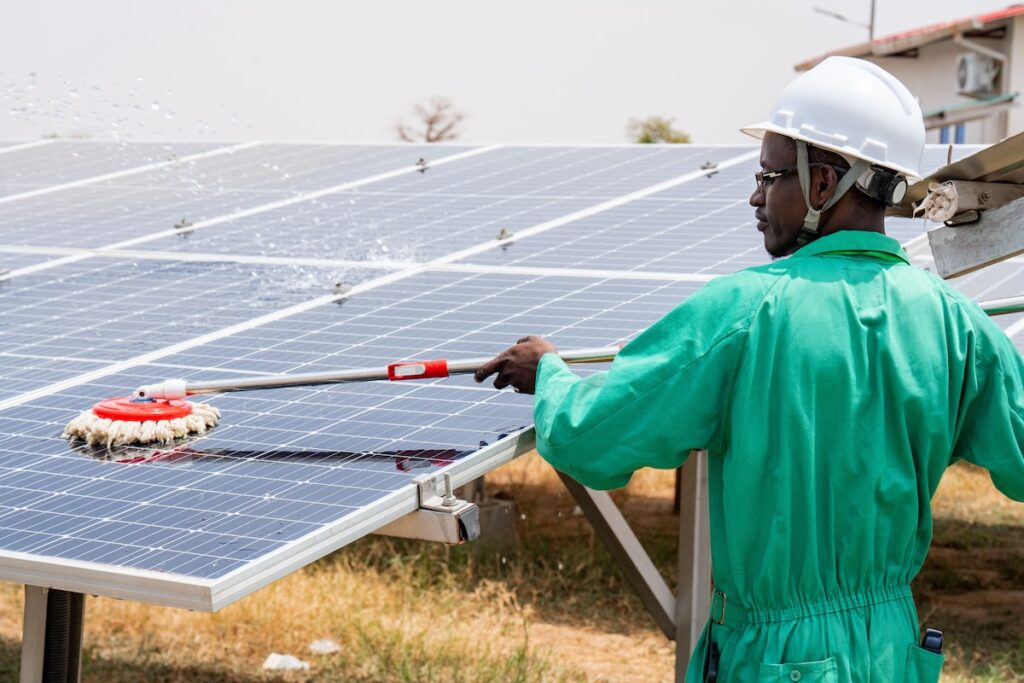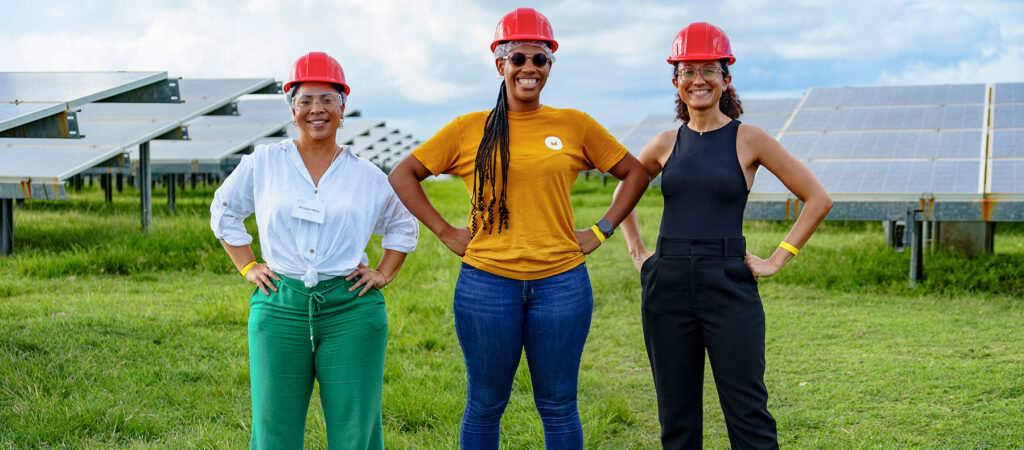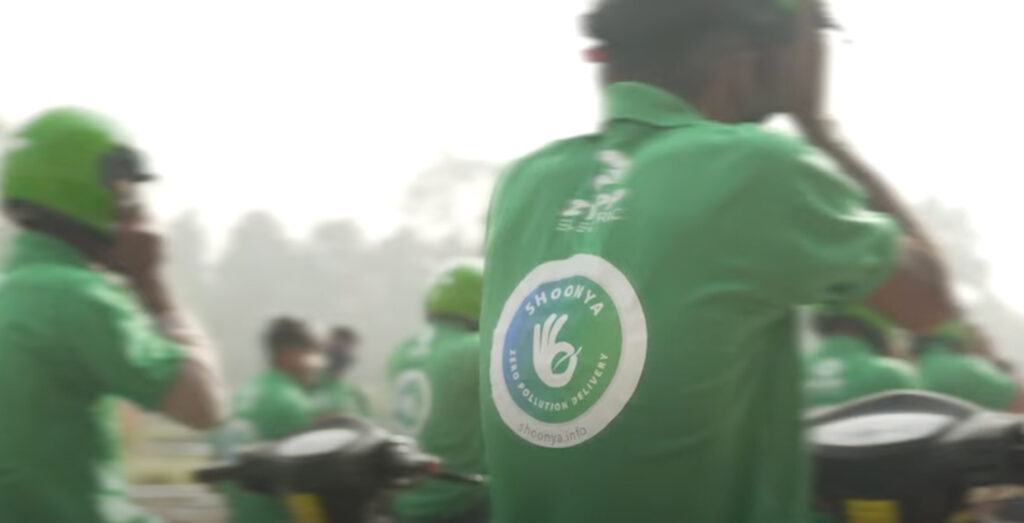Earth Day — Our Power, Our Planet
This Earth Day, RMI highlights a select few of our many projects that are bringing clean, affordable, and resilient energy to people around the world.
Clean energy is growing for many reasons. It delivers new jobs, spurs growth, and strengthens economic resilience. Surveys show that most people in most countries support the shift to solar, wind, batteries, and other clean solutions.
Earth Day, recognized every year on April 22, offers a moment to recognize how far and wide these values have spread in the 55 years since the first Earth Day was celebrated. This year, Earth Day’s theme is “Our Power, Our Planet,” focused on expanding solar, wind, geothermal, and other forms of clean energy technology everywhere.
This goal hits home for everyone at RMI. Since 1982, our growing team has been working to deliver clean, affordable, and resilient energy to communities first in Colorado, then across the United States, and now around the world. Below, we highlight a few examples of RMI’s work that demonstrate these benefits, including new jobs, economic growth, improved health, and better resilience in the face of outages.
Rooftop solar and building electrification across the United States
In 2021 and 2022, RMI brought together community organizations, utilities, and local nonprofits from 27 cities from Boston to Honolulu to support them in implementing Solarize campaigns targeted to low- and moderate-income (LMI) communities.
Solarize campaigns help people access rooftop solar systems by lowering equipment costs through bulk purchases and streamlining the sometimes complicated permitting and construction process.
The campaigns organized through these cohorts helped nearly 1,200 households install more than 10 megawatts of residential solar. Over their 25-year lifespan, these installations are estimated to save households over $8 million and avoid over 106,000 tons in CO2 emissions, equivalent to planting over 1.76 million trees. Overall, 40 percent of the households that purchased solar systems through the RMI Solarize cohort programs were in LMI or Black, Indigenous, and People of Color communities.

In a similar program, in 2022 and 2023, RMI’s Electrify cohort helped 12 teams from across the country — representing 20 local governments and their 30 partner organizations — develop and launch programs to help community members electrify their homes, focusing on heat pumps. The program helped hundreds of families, like the Cavarras in Western Colorado (shown in the top image), get heat pumps.
From Washington state to Virginia, these teams learned from experts and one another on how to run successful programs to deploy heat pumps. Drawing on insights from this work, the RMI team published guidance to help other cities and jurisdictions run their own electrify programs.
How You Can Help
We need big ideas to shift to clean energy and bold partners who support our mission to make it happen. Right now, thanks to a generous match, every $1 donated = $2!
Innovative solar solutions in Nigeria
Since 2017, RMI has been working in Nigeria to provide power to communities with little or no access to reliable electricity.
Across Nigeria, and much of Africa, people use diesel and gas generators to supplement the unreliable power from the grid, leading to an estimated 33 million tons of climate pollution emissions each year. This is also extremely costly, especially after the removal of Nigeria’s fuel subsidy in 2023, which nearly tripled gas prices.
To address this, RMI and our local partners have implemented numerous solar-based projects that are delivering power to thousands of households and businesses across the country.

While having electricity is good, what matters most is what the electricity is being used for: the productive use of energy. Since much of Nigeria’s economy still revolves around agriculture and most of this happens in these rural communities, RMI launched the Energizing Agriculture Programme (EAP).
Via solar-plus-storage minigrids, the EAP delivered both electricity and the potential for economic growth. By bringing energy and agriculture companies together, RMI helped identify shared opportunities. Altogether, the collaboration delivered 269 electric mills, freezers, electric vehicles, and other agricultural equipment across five value chains in 17 minigrid communities.
Developing a clean energy workforce across the Caribbean
By 2030, some 30 million skilled professionals will be needed to build and operate clean energy projects around the world. They will need to plan, develop, and invest in the technologies and infrastructure of the clean energy future.
That’s why RMI created the Energy Transition Academy. The ETA provides engineers, bankers, regulators, project developers, and government officials throughout the Caribbean with the skills needed to drive the clean energy transition.
ETA’s Global Fellowship Program empowers professionals who are actively advancing distributed energy resource projects through peer-to-peer learning, advanced technical training, networking, and leadership opportunities. In 2023, the program took on 20 Fellows from 12 Caribbean islands who are now advancing renewable energy projects in their communities.

RMI also understands the importance of bringing more women into the clean energy workforce. In the Caribbean, RMI developed the Women in Renewable Energy (WIRE) Network as a professional development group for women working in energy in island nations throughout the region. Every year, 12 women participate in WIRE’s flagship mentorship and networking program. The WIRE network creates a supportive space where women in renewable energy can exchange ideas, share experiences, and collaborate on their shared journey toward advancing the energy transition.
Learn more:
Electric deliveries in India
Cities in India have some of the world’s worst air pollution. Harmful exhaust from fossil fuel-powered delivery and ride-hailing vehicles — mostly two- and three-wheelers — are a major source of that bad air.
To help reduce air pollution in India, RMI and NITI Aayog, a premier government think tank, co-developed the Shoonya – Zero Pollution Mobility campaign. The goal? To create consumer demand for zero-emissions ride-hailing and delivery vehicles. The campaign promotes EV adoption by highlighting corporate efforts with its cohort of 225+ companies, running multimedia awareness activities, and offering online educational toolkits.

Between September 2021 and March 2025, the Shoonya partners collectively deployed thousands of electric vehicles across India. These EVs completed around 810 million rides and deliveries, providing people with cleaner air, saving over $110 million, and avoiding 92,000 tons of CO2 emissions, 667 tons of nitrogen oxide, and 18.7 tons of particulate matter.
Learn more:
These are only some of the many projects we have done over the years to help power our planet with clean energy and improve health, grow jobs, increase resilience, and improve people’s livelihoods.
Click on the map above to see more, and let’s continue to celebrate Earth Day every day!
